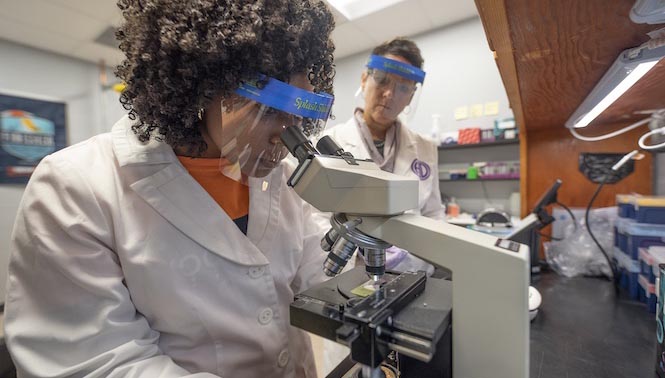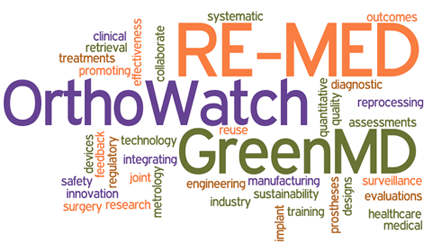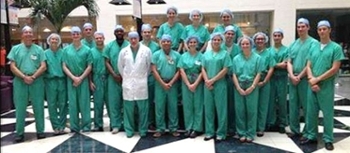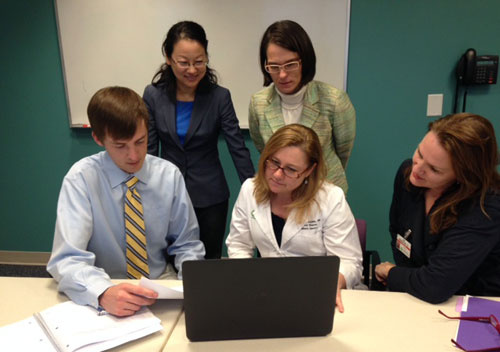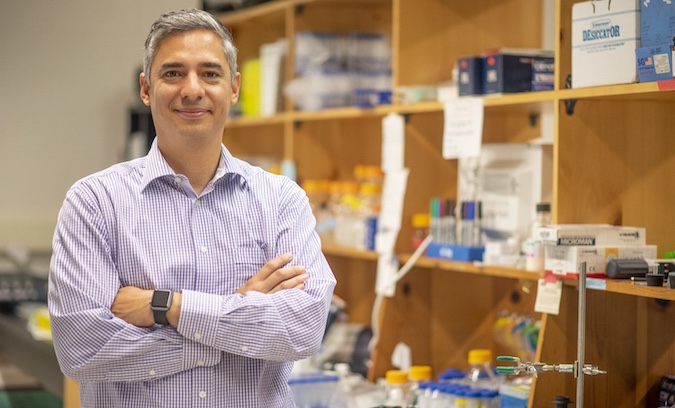Collaborators
- Cheryl Dye, Ph.D., Public Health Sciences, Clemson
- James Davis, M.D., Geriatric Medicine, Prisma Health–Upstate
Cheryl Dye, a professor of public health sciences at Clemson, has spent the past 17 years studying the health of aging adults, and is investigating how she can help people with dementia and Alzheimer’s disease stay at home as long as possible by supporting their caregivers.
Dye partners with Prisma Health–Upstate’s Memory Health Program, which provides comprehensive evaluations of a person’s memory health and, when needed, specialized care for the patient and plans of care for caregivers. James Davis, director of the Prisma Health–Upstate Division of Geriatrics and Palliative Medicine, leads the Memory Health Program.
Dye thinks the stress of taking care of a loved one with Alzheimer’s Disease and Related Disorders (ADRD) is often responsible for spouses of those with dementia having a six times greater risk of developing ADRD themselves, compared to spouses of those without dementia. It can be especially difficult for male caregivers, if they are not comfortable asking for help or if they do not have experience in taking care of others.
Dye and her colleagues at the Memory Health Program provide caregivers stress relief activities and education on how to take care of their loved ones.
Today, 5 million people in the U.S. have ADRD, and by 2050 that number is expected to increase to 16 million. The cost for caring for people with ADRD is estimated at $214 billion in 2014, increasing to $1.2 trillion by mid-century – a figure that could negatively impact the economy and the finances of millions of families.
There is currently no cure for ADRD, but Dye and her Prisma Health partners teach that there are things that can be done to reduce risk.
“What you do in your 40s and 50s will determine how well you’re going to age in your 60s and above,” explains Dye. “Exercise, healthy eating habits, not smoking, and managing hypertension and diabetes are essential for maintaining brain health through old age.”

